A landing page is the first impression of a company for users who click the paid das. It is the most critical element for Google’s paid ads campaign. In this article, we will discuss, Landing Page tips for Google ads. So let’s get started.
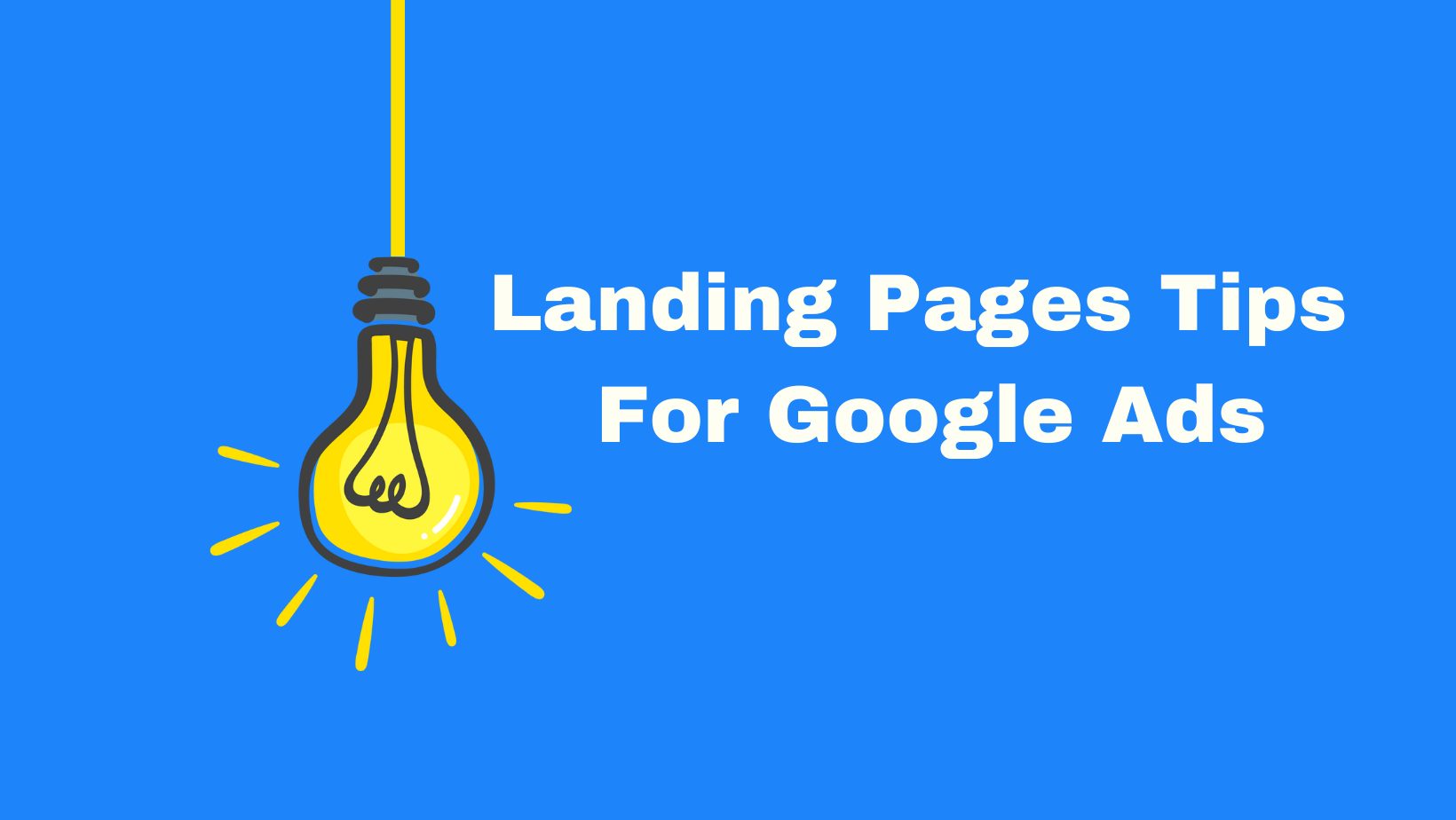
Page Contents:
What Are Landing Pages For Google Ads?
Landing pages where visitors land after clicking on the ads. The landing page and the ads’ final URL are similar. In other words, landing pages are the elements that direct users to create further actions.
A good landing page has a clear call to action, the content should match the search intent, and some high-quality images and videos. The main purpose of the landing page is to get the most out of the paid ads.
10 Landing Pages Tips For Google Ads
Creating effective and attractive landing pages makes your Google ad campaign work and the desired results. All the elements on a high-conversion landing page should focus on the sole goal which is to convert. Here are some best practices
1. Add a powerful heading
Strong landing pages must have a powerful heading. Many visitors only read the heading. Make sure the heading has enough potential to hold the customers.
2. Write a short but clear copy
While writing the content for the landing page include all the details of your ads. Please explain what you are offering and how it will benefit the visitors. Your content should be tempting and convincing your visitors to have your services.
3. Use image
Choose an image that conveys the message of your offer. Images are a compulsory section of the landing page. Your landing page will look bland and dull without a perfect image.
4. Use above-the-fold
Make your landing page easily accessible. Change the visitor to a customer in the above-the-fold section only. You can add a link to the form or purchase option so that the visitor does not have to search for it further.
5. A clear call to action
Call-to-action is a mandatory thing for every campaign. It is the last step of a visitor’s journey. The main goal of a campaign is conversion. Conversions are possible only with a call to action. Remember a call to action is the key to a return on investment.
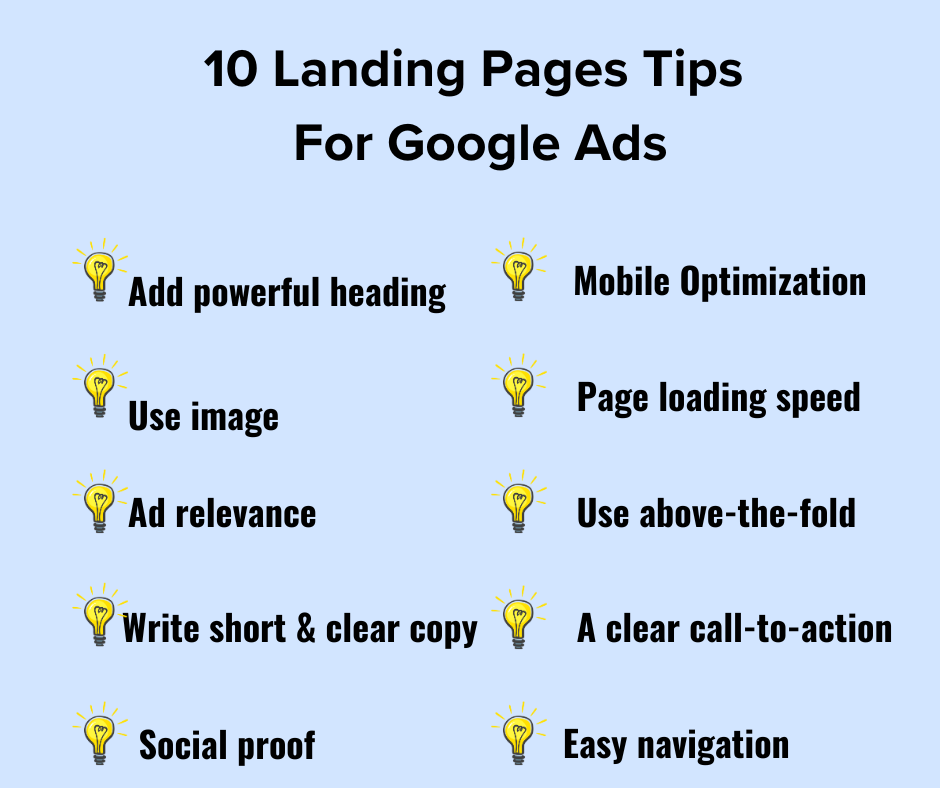
6. Ad relevance
The content on your landing page should match the PPC promises. The landing page should explain the offer. For example, you offer a welcome discount to your customers so you should highlight that on your landing pages.
7. Page loading speed
Slow loading speed is the sole reason for the high bounce-back rate. It will drop your conversion rate and will leave a bad impression on the user. Make sure you optimize your landing page well. Reduce the loading speed as much as possible.
8. Mobile Optimization
According to global stats, 59.89% of the traffic on the internet is through mobile phones. Hence a responsive design of landing pages is important. This will increase your conversion rates. You can also create a mobile-only version for your website.
9. Social proof
Social proof such as reviews and testimonials are great influencers for new visitors. Putting them on your landing page is an effective step to get more conversions. This will also solve the problem of short-form content.
10. Easy navigation
Keep your navigation simple so that it becomes easy for customers to take action. When users swiftly navigate your landing page then they are more likely to do the required call-to-action. Good navigation means better user experience and in turn a high conversion and ROI rate.
8 Things to Avoid When Creating Landing Pages For Google Ads
Landing pages need to be perfect and flawless for the success of the landing pages. Businesses often commit some common mistakes. these are as follows;
1. One landing page for many ads
One landing page for many ads will lead to confusion for visitors. The market funnel has various stages and requires a wise approach to convert leads effectively. Since every ad campaign targets different search intent, they require a different landing page.
According to the Hubs Spot survey, websites having 30-40 landing pages can generate seven times more leads than those having 4-5 landing pages only.
2. Only making short-form contents
It’s a myth that says short-form content is effective for ads landing pages. The length of the content depends upon the goal of the ads. If the goal is only to get contacts like email or phone numbers then this approach is excellent.
Suppose you are offering something or a sale where you are aiming to get a high quality. In this case, you should go for long-form content.
3. Complex layout
The main goal of a landing page should be to provide information easily and quickly. If you overload your landing page with text or too many images then it is more likely to leave very quickly. This poor visual creates a negative impact on users.
4. Multiple call-to-actions
We have already discussed the importance of call-to-action. Your call to action should be clear. The common mistake here is multiple calls to action. This may confuse the visitor about what action to take and how to take it. Hence we ended up leaving your site. Focus on the quality of call-to-action and not the quantity.
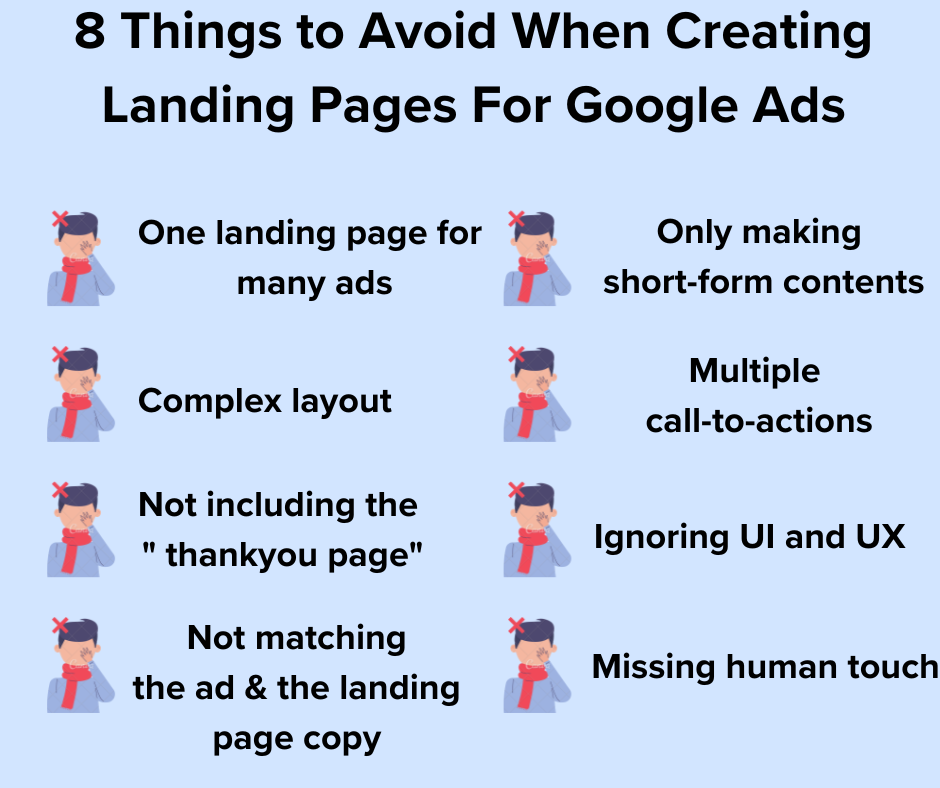
5. Not including the ” thankyou page”
Do you want your new leads to become a regular customer? This is only possible when you leave an impression worth remembering. Don’t add a thank you page as a formality. Put efforts to make it creative and pleasing for the customers.
6. Ignoring UI and UX
If you think there is no need to improve your UX design, you are on the wrong path. Landing pages are the first encounters for many visitors. it should be perfect. If your landing page is user friendly you will be able to influence people and get conversions.
7. Not matching the ad and the landing page copy
This is a blunder. if your ad copy and landing page copy are not the same then be ready for a lot of confusion. You will lose trust and end up getting a meager conversion rate.
8. Missing human touch
With the innovation of AI content, landing pages look robot-generated. Avoid robotic tones and add conversation tones. Write in 2nd person. Make the content understandable.
Landing Pages Optimization Tools
Landing page optimization becomes easy and fast with the tools. Choose the tools according to your end goal. here is a list of the best tools you can choose from;
1. Qualaroo
Qualaroo is one of the best tools for landing page optimization. It gives you the reason for the high bounce-back rate. using it you can conduct on-site surveys and find opportunities to improve.

It takes a moment to set up. In addition, it provides professionally designed templates with 12+ questions. It has multi-channel deployment with over 6+ options.
It also provides ab testing hypotheses and gathers data using an exit intent survey. The pricing starts from $69 per month.
2. Unbounce
Unbounce is a user-friendly leading landing page optimization tool. It has a special feature called the drag and drop editor using this you can you can easily customize your landing page design.
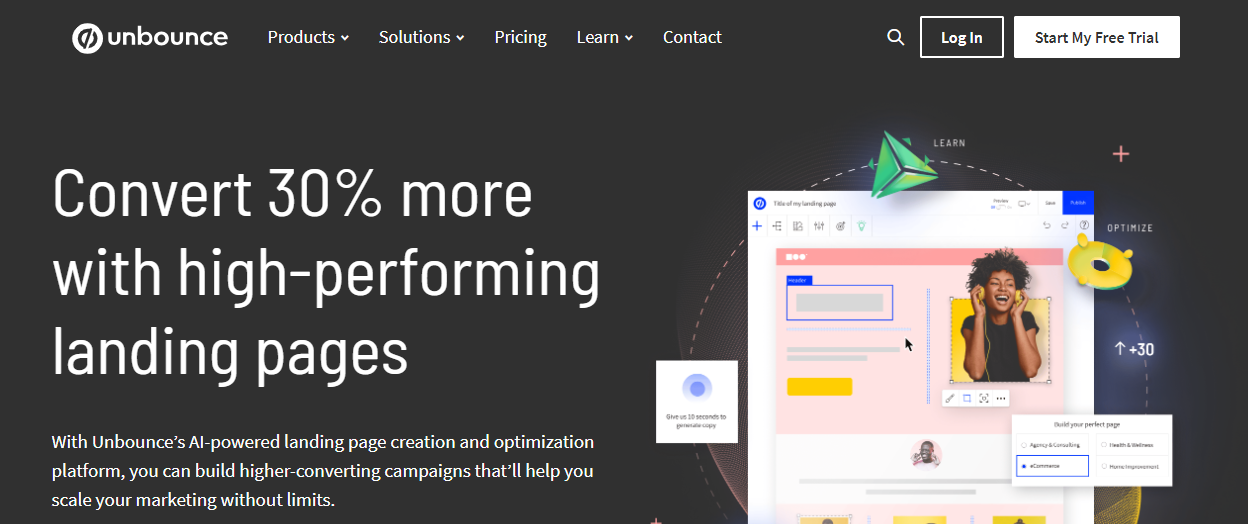
They provide professional survey templates. They have tools to create attractive looks for your landing page layout. In addition to this, it can predict and optimize your ad campaigns. The pricing starts from 80 dollars per month.
3. Lead Pages
Lead page is also one of the well-known and leading tools. It is specifically a landing page creator. It has a marketplace where you can create and sell your survey templates. Apart from this, there are hundreds of templates available.
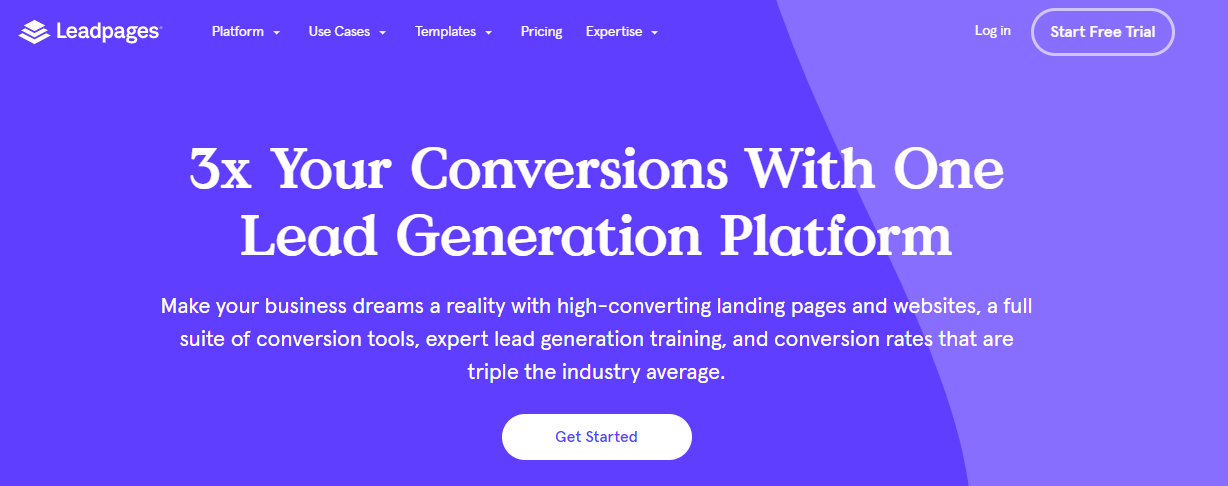
Furthermore, you can also conduct split tests for landing pages to assess their overall performance. You also get an in-built analytics system that provides you with the best insights. The pricing starts from $37 per month.
4. Hotjar
Hotjar is one of the popular tools that help marketers to analyze customers’ behavior. It provides heatmaps to help marketers with on-site surveys. It uses turns, rages, and inbound links to filter session records to get useful insights.
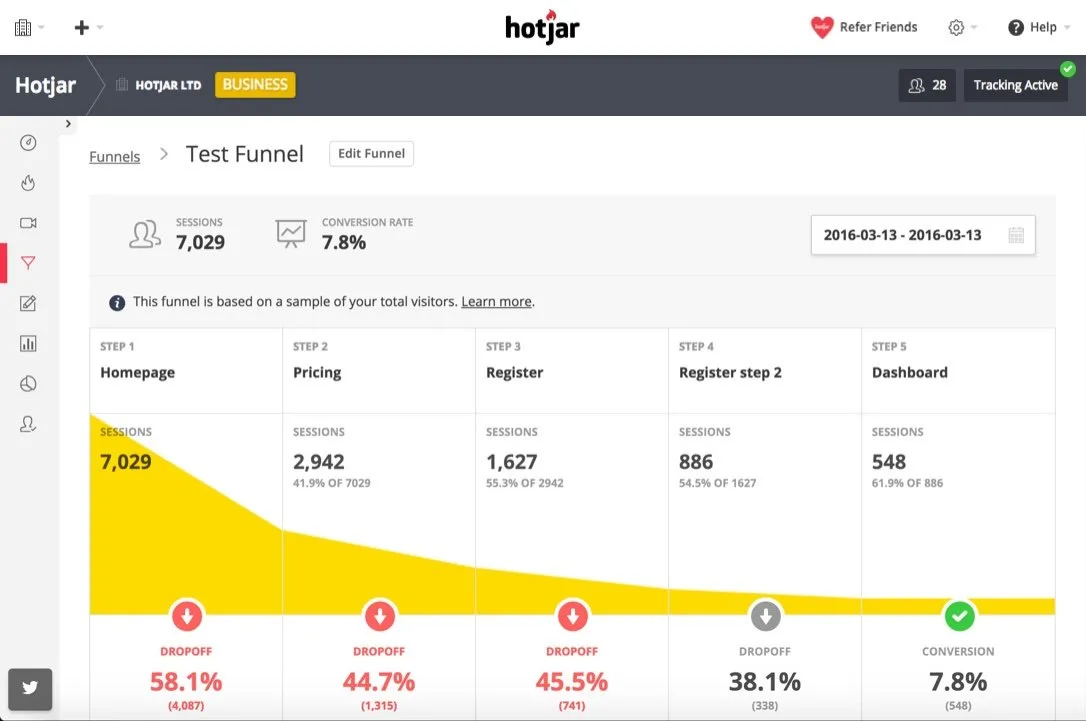
You can get a strict and in-depth analysis of your page with points for improvement. The pricing starts from $39 per month. It also offers a free basic tool kit.
5. Optimizely
Optimized is one of the most popular tools. It has very effective optimization and experimental tools. You can do A/B testing. It provides drag-and-drop visuals for creating many versions of landing pages.
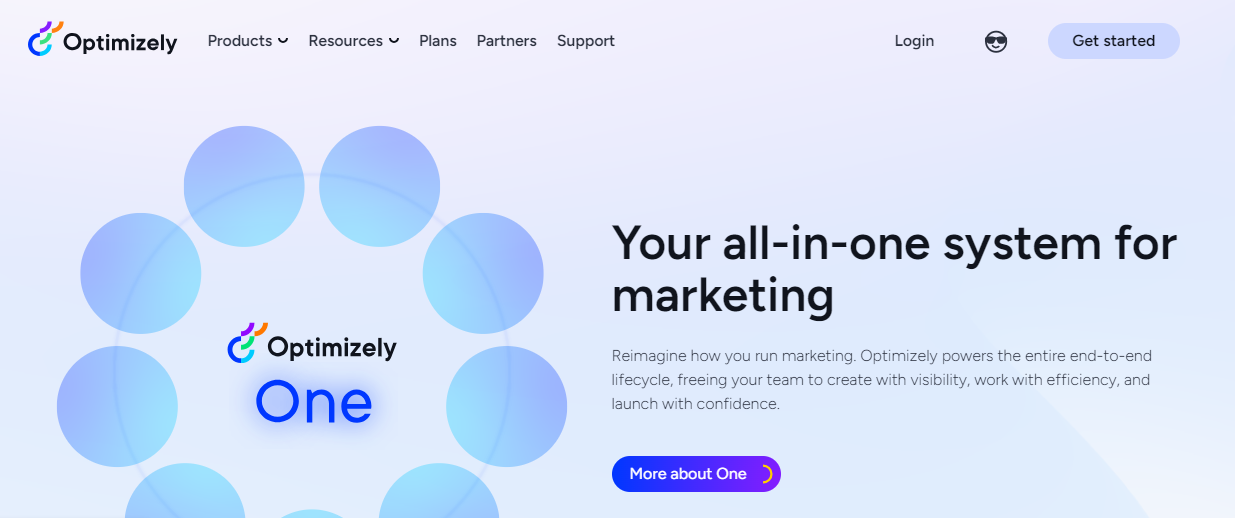
You can conduct experiments to check functionalities and content. It also provides a user interface and targets many upcoming functions of the landing pages.